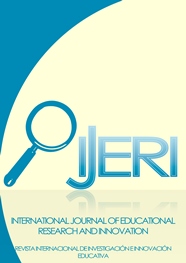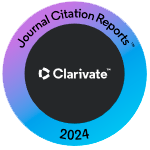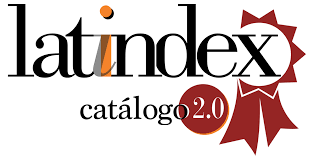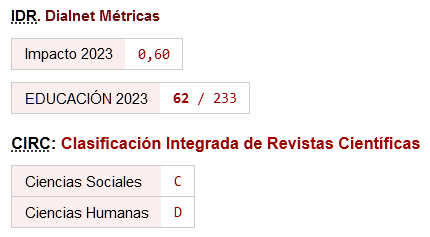Perceptions on the educational impact of COVID-19: Analysis of a TECNOEDU Webinar
DOI:
https://doi.org/10.46661/ijeri.5732Keywords:
hybrid learning, educational technology, webinar, covid19Abstract
This paper is based on the experience of the knowledge transfer activities of the Mapfre Foundation Chair for Technology and Education, consisting of three webinars where the speakers are education professionals and researchers in the field of Educational Technology. In the public we have had university, Undergraduate and Postgraduate students and education professionals of different educational levels. Among the attendees, a questionnaire has been disseminated to know their impression of the situation experienced during confinement by the COVID-19 pandemic and the prospects that they predict on education in relation to the use of technology. We have performed a quantitative analysis of dichotomous and qualitative variables using an exploratory coding system, at both times, during and after the pandemic. We have also investigated the possible relationships between codes, through a co-occurrence analysis. The main results describe that most people have had sufficient resources to face the abrupt change to online teaching, although it has involved a high emotional effort. Regarding the future post-COVID-19, the people surveyed consider that, after the pandemic is over, greater methodological and didactic flexibility will be advocated both in the offer of itineraries in the subjects and in the offer of academic degrees.
Downloads
References
Andreu, J. (2002). Las técnicas de análisis de contenido. Sevilla: Fundación Centro de Estudios Andaluces. Recuperado de:
Escalante-Gómez, E. (2009). Una nota metodológica sobre los análisis cualitativos. El análisis de las relaciones entre los elementos: el análisis de frecuencias y co-ocurrencias. Theorema, 18 (1), 57-67. Recuperado de:
https://www.redalyc.org/articulo.oa?id=29911857006
García-Peñalvo, F.J. y Corell. A. (2020). La COVID-19: ¿enzima de la transformación digital de la docencia o reflejo de una crisis metodológica y competencial en la educación superior?. Campus Virtuales, 9(2), 83-98. Recuperado de: h74ttp://uajournals.com/ojs/index.php/campusvirtuales/article/view/740
Kuric Kardelis, S.; Calderón-Gómez, D. y Sanmartín Ortí, A. (2021). Educación y brecha digital en tiempos del COVID-19. Perfiles y problemáticas experimentadas por el alumnado juvenil para afrontar sus estudios durante el confinamiento. Revista de Sociología de la Educación-RASE, 14 (1), 63-84. Recuperado de: http://dx.doi.org/10.7203/RASE.14.1.18265
Sousa-Santos, S.; Peset-González, M.J. y Muñoz-Sepúlveda, J.A. (2020). La enseñanza híbrida mediante flipped classroom en la educación superior. Revista de Educación, 391. Enero-Marzo 2021, pp. 123-147. Recuperado de: http://www.educacionyfp.gob.es/revista-de-educacion/numeros-revista-educacion/numeros-anteriores/2021/391/391-5.html
De Obesso, M. y Nuñez, M. (2020). El modelo educativo híbrido: una respuesta necesaria de la enseñanza universitaria a partir de la Covid-19. Recuperado de: https://www.researchgate.net/deref/http%3A%2F%2Fdx.doi.org%2F10.13140%2FRG.2.2.34706.89289?_sg%5B0%5D=_p3JkkRcXfF2qWbYE5afBt2jIUtZ1fk-c1CCCx0YIo43TEDim2Kz_9zvD0XyMt_ppZiQI_R1Lzi4UyZ0rD14IEch0A.UsjCKPzSHY6LLs2F4sxfvuNJCE18sTnpaBHZqh9mb6SpOiva8727b3s4fNBJ3MruZZ_MKJSKvgxHlqCyb7TLHw
Downloads
Published
How to Cite
Issue
Section
License
Copyright (c) 2021 Inmaculada Fernández Esteban, Anabel Bethencourt Aguilar, Sebastián Martín Gómez, Cecilia Becerra-Brito, Manuel Area Moreira

This work is licensed under a Creative Commons Attribution-NonCommercial-NoDerivatives 4.0 International License.











